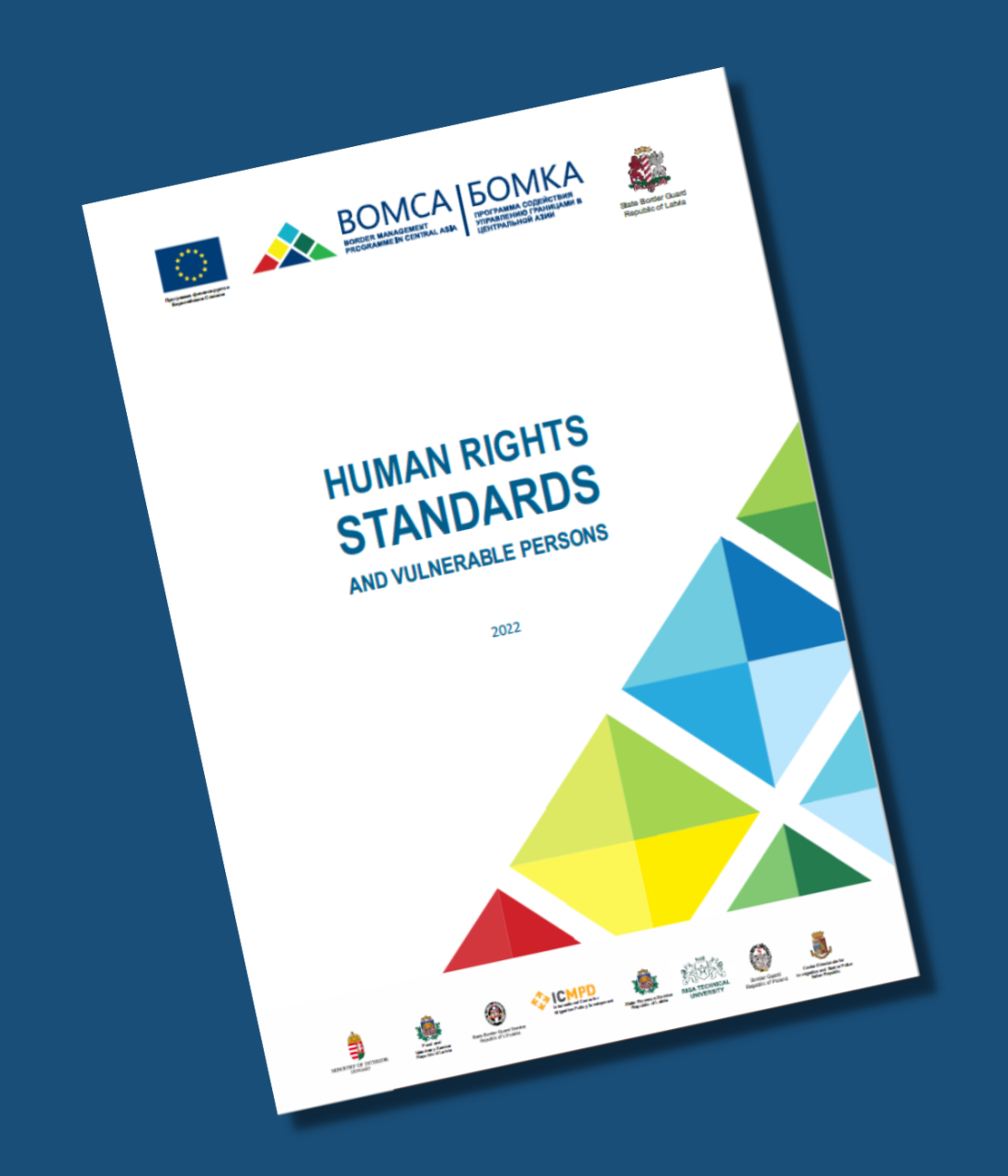Human Rights Standards and Vulnerable Persons
Educational materials
Thematic Component: 2. Improvement of Detection CapacitiesCountry:
This booklet was prepared as part of the Workshops on human rights, gender, eliminating sexual harassment and gender sensitivity held in Kazakhstan, Kyrgyzstan, Tajikistan, Turkmenistan and Uzbekistan in 2022-2023, as part of Component 2 of the Border Management Programme in Central Asia – Phase 10 (BOMCA 10). The objective of this component is to enhance detection, coordination and investigation effectiveness within and between Central Asian countries. The implementation of the specific objectives of each component of the Programme will contribute to the achievement of the overall objective of enhancing security, stability and sustainable growth in the Central Asian region, as well as supporting cross-border cooperation and improving living conditions for people living in the border regions of Central Asia.
The workshops were held in cooperation with the European Border and Coast Guard Agency (Frontex) and targeted border guards and law enforcement officers. The objective of the workshops was to familiarize participants with the topic of human rights, gender issues, indicators of sexual harassment and gender sensitivity, as well as with the linkages of these issues with the context of law enforcement and border agencies and the role of non-governmental organisations in providing assistance in cases of human rights violations and gender-based violence. The workshops were conducted by the Programme's expert team - Ms. Edita Prilepskiene, lawyer and expert of the State Border Guard Service under the Ministry of the Interior of the Republic of Lithuania, and Mr. Marius Taparavicius, lawyer and expert at the Lithuanian Red Cross. The expert team has also authored this booklet.
This booklet is intended primarily for border guards and law enforcement officials in Central Asia, providing key information, important aspects and links to additional literature on human rights, gender sensitivity and countering gender-based violence in the context of law enforcement activities of government agencies. Also, this publication will be of interest to a wider audience as a source of well-structured and specific information on the protection of human rights.

